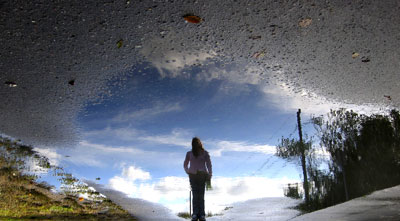All Nonfiction
- Bullying
- Books
- Academic
- Author Interviews
- Celebrity interviews
- College Articles
- College Essays
- Educator of the Year
- Heroes
- Interviews
- Memoir
- Personal Experience
- Sports
- Travel & Culture
All Opinions
- Bullying
- Current Events / Politics
- Discrimination
- Drugs / Alcohol / Smoking
- Entertainment / Celebrities
- Environment
- Love / Relationships
- Movies / Music / TV
- Pop Culture / Trends
- School / College
- Social Issues / Civics
- Spirituality / Religion
- Sports / Hobbies
All Hot Topics
- Bullying
- Community Service
- Environment
- Health
- Letters to the Editor
- Pride & Prejudice
- What Matters
- Back
Summer Guide
- Program Links
- Program Reviews
- Back
College Guide
- College Links
- College Reviews
- College Essays
- College Articles
- Back
I Can See It Too
I’ve been called quite a few words in my short life of seventeen years. Among these, the most popular have undoubtedly been “weird,” “strange,” “creative,” and “imaginative.” Though the latter two can be taken in a positive light, the former two are without a doubt terrible euphemisms for being outside the social norm. As I grew older, society expected me to tone down my quirkiness more and more... And I complied. Until one fateful day in seventh grade, when I picked up a dusty copy of Douglas Adams’ Hitchhiker’s Guide to the Galaxy and unknowingly embarked on the quest to find myself.
Though I had read mounds of fantasy books, heaps of fiction novels, and piles of poetry, it was the famously silly first book of the Hitchhiker series that really grabbed my attention. Starting on page one, when poor and confused Arthur Dent struggled to make out his unfortunate circumstances, I became hooked. Not only was I intrigued by the story, I was also plunged headfirst into how incredible--that is, how weird and strange and creative and imaginative this book was. As Arthur travelled with Ford Prefect through the Galaxy, spoke to Vogons, interacted with robots, and lived a life that I wished I could experience, I realized a door had been opened for me.
In school, imagination meant trouble. In literature, imagination meant truth.
If, during class, I had spoken of Arthur Dent and called him my friend, I would find myself in deep, deep trouble. I might even be sent to the principal’s office and seated on a high stool and reprimanded harshly for yet again having my head in “the wrong place.” But I no longer had to worry about that. Mr. Douglas Adams--or “Doug,” as I like to think of him--was in the same boat I was. His brain flew fifty thousand light years a day. He thought up fantastical things, creating more astonishingly bizarre and beautiful ideas each time. And to top it off, his storytelling skills were magical. Wielding an exceptional power over words, Doug weaved sentences and scenes effortlessly, fearlessly playing with puns and double entendres, and displaying his work of art for all to applaud. My admiration for him and his work started on that first page of the first book--simultaneously starting the first page of the first book of my life.
Doug could and did do whatever he wanted with the story, carrying it in directions that no one could predict. Indeed, the world of Vogon airlocks and depressed robots and 42 was a world that not a single person could see--but Doug saw it. And he faithfully relayed what he saw; what was beautiful and visible only in his eyes, he shared with the world. What he did is what I would like to do. With an “odd” brain creating “slightly off” thoughts, I tend to dream more than I do memorize. I fathom worlds far beyond our own, and while my classmates sit quietly and absorb facts about Earth, I travel far, far away into a land and time unknown to others. A place so beautiful that only a few can see it; a place so beautiful that convention and structure are unwilling to visit and too ignorant to appreciate. That is where I go, and it is pieces of that world that I treasure and attempt to share with others.
For me, Hitchhiker’s Guide to the Galaxy, that small, seemingly innocent book, was the ticket to freedom and, in turn, the greatest head start possible in the quest to find myself; through Doug’s journey with his characters, I learned it was okay to pursue my own, no matter how far from the social norm it may lie. It is because of his book that I know what I would like to do with my life. It is because of his book that I am not afraid to dream. And it is because of his book, that I am a writer. So hey, Doug: Thank You.

Similar Articles
JOIN THE DISCUSSION
This article has 1 comment.
